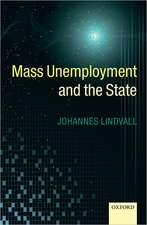Foreign Policies of EU Member States: Continuity and Europeanisation
Editat de Amelia Hadfield, Ian Manners, Richard G. Whitmanen Limba Engleză Hardback – 9 iun 2017
- First, EU Member States must cooperate within the mechanisms of the EU, including the Common Foreign and Security Policy (CFSP).
- Second, EU Member States continue to construct their own inter-EU foreign policies.
- Third, the sovereign prerogative exercised by all EU Member States is to construct their own foreign policies on everything from trade and defence with the rest of the world.
| Toate formatele și edițiile | Preț | Express |
|---|---|---|
| Paperback (1) | 358.58 lei 6-8 săpt. | |
| Taylor & Francis – 9 iun 2017 | 358.58 lei 6-8 săpt. | |
| Hardback (1) | 1116.27 lei 6-8 săpt. | |
| Taylor & Francis – 9 iun 2017 | 1116.27 lei 6-8 săpt. |
Preț: 1116.27 lei
Preț vechi: 1361.30 lei
-18% Nou
Puncte Express: 1674
Preț estimativ în valută:
213.60€ • 223.47$ • 177.44£
213.60€ • 223.47$ • 177.44£
Carte tipărită la comandă
Livrare economică 02-16 aprilie
Preluare comenzi: 021 569.72.76
Specificații
ISBN-13: 9780415670050
ISBN-10: 0415670055
Pagini: 304
Ilustrații: 11 b/w images and 11 line drawings
Dimensiuni: 174 x 246 x 19 mm
Greutate: 0.66 kg
Ediția:1
Editura: Taylor & Francis
Colecția Routledge
Locul publicării:Oxford, United Kingdom
ISBN-10: 0415670055
Pagini: 304
Ilustrații: 11 b/w images and 11 line drawings
Dimensiuni: 174 x 246 x 19 mm
Greutate: 0.66 kg
Ediția:1
Editura: Taylor & Francis
Colecția Routledge
Locul publicării:Oxford, United Kingdom
Public țintă
UndergraduateCuprins
Introduction
Part I: Geographic Orientations / Geopolitics
1. Northern Europe: Denmark, Sweden, Finland & New Northern Europe: Baltics
2. Western Europe, Britain, Ireland, Benelux 3
3. Eastern Europe, Visegrad Four / Austria / Slovenia, Romania, Bulgaria
4. Core Europe: France and Germany
5. Southern Europe, Spain, Portugal, Italy, Greece, New Southern Europe: Malta, Cyprus
Part II: Foreign Policy Dimensions
6. Foreign Policy and Diplomacy
7. Security and Defence
8. Member State policy towards EY military operations
9. Enlargement and Geopolitics
10. Energy Security and Climate Change
11. Neighbourhood Policy
12. Development
13. External Facets of Justice, Freedom and Security
14. National Aims and Adaptations
15. EU in the World: From Multilateralism to Global Governance
16. Conclusion
Part I: Geographic Orientations / Geopolitics
1. Northern Europe: Denmark, Sweden, Finland & New Northern Europe: Baltics
2. Western Europe, Britain, Ireland, Benelux 3
3. Eastern Europe, Visegrad Four / Austria / Slovenia, Romania, Bulgaria
4. Core Europe: France and Germany
5. Southern Europe, Spain, Portugal, Italy, Greece, New Southern Europe: Malta, Cyprus
Part II: Foreign Policy Dimensions
6. Foreign Policy and Diplomacy
7. Security and Defence
8. Member State policy towards EY military operations
9. Enlargement and Geopolitics
10. Energy Security and Climate Change
11. Neighbourhood Policy
12. Development
13. External Facets of Justice, Freedom and Security
14. National Aims and Adaptations
15. EU in the World: From Multilateralism to Global Governance
16. Conclusion
Notă biografică
Amelia Hadfield is the Director of the Centre for European Studies (CEFEUS) and the Jean Monnet Chair in European Foreign Affairs, at Canterbury Christ Church University.
Ian Manners is a Professor in the Department of Political Science at the University of Copenhagen, Denmark.
Richard G. Whitman is Professor of Politics and International Relations and Head of the School of Politics and International Relations at the University of Kent, UK. He is also Associate Fellow at Chatham House and an Academic Fellow at the European Policy Centre.
Ian Manners is a Professor in the Department of Political Science at the University of Copenhagen, Denmark.
Richard G. Whitman is Professor of Politics and International Relations and Head of the School of Politics and International Relations at the University of Kent, UK. He is also Associate Fellow at Chatham House and an Academic Fellow at the European Policy Centre.
Recenzii
‘For the many scholars and students who have used the first edition of The Foreign Policies of EU Member States as a key reference and resource, this second edition is very welcome. It also represents a significant advance in our understanding of foreign policies in the EU, combining as it does analysis based on the geopolitical orientations and roles of the member states with their engagement in a series of cross-cutting issues, and enables important comparative conclusions to be drawn. The result is a rich and provocative collection of case-studies as well as a stimulating comparative analysis.’
Michael Smith, University of Warwick, UK.
‘This most welcomed edited book provides an indispensable contribution to studying and understanding EU foreign policy by linking the diverse historic and geostrategic foundations of Member States’ identity and preferences, to those domestic dimensions’ influence on forging a ‘common’ foreign policy across often rather contentious foreign policy fields. It is thus an invaluable read for academics’ as much as for actual foreign policy-makers’ interested in comprehending the challenge of achieving ‘unity in diversity’ in EU foreign policy-making.’
Ingo Peters, Freie Universität Berlin, Germany.
Michael Smith, University of Warwick, UK.
‘This most welcomed edited book provides an indispensable contribution to studying and understanding EU foreign policy by linking the diverse historic and geostrategic foundations of Member States’ identity and preferences, to those domestic dimensions’ influence on forging a ‘common’ foreign policy across often rather contentious foreign policy fields. It is thus an invaluable read for academics’ as much as for actual foreign policy-makers’ interested in comprehending the challenge of achieving ‘unity in diversity’ in EU foreign policy-making.’
Ingo Peters, Freie Universität Berlin, Germany.
Descriere
This text provides a clear and current overview of the motivations and outcomes of EU Member States regarding their foreign policy-making within and beyond the EU. It provides an in-depth analysis of intra-EU policy-making, and sheds light in an innovative and understandable way on the lesser known aspects of the inter-EU and extra-EU foreign policies of the 28 Member States.














